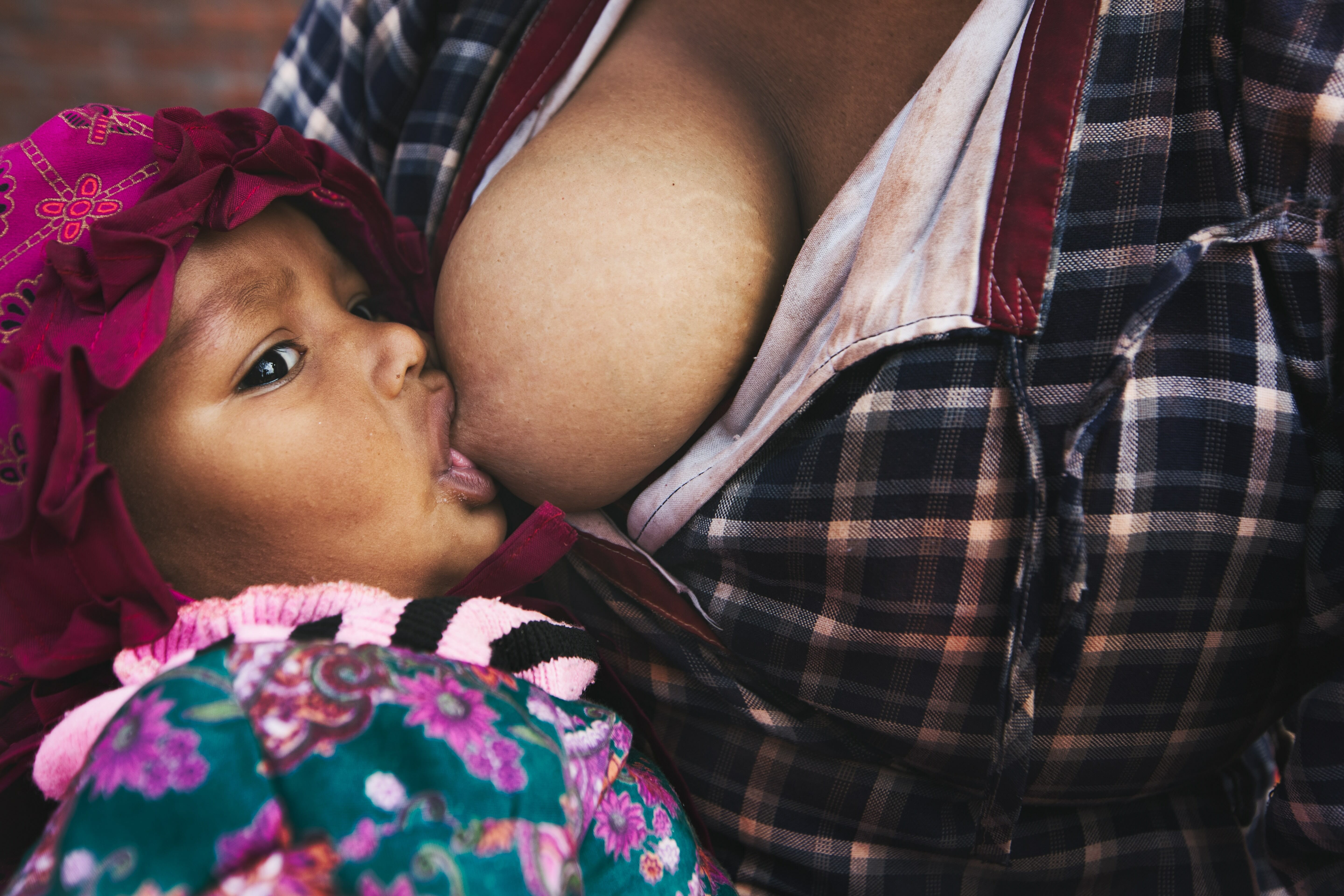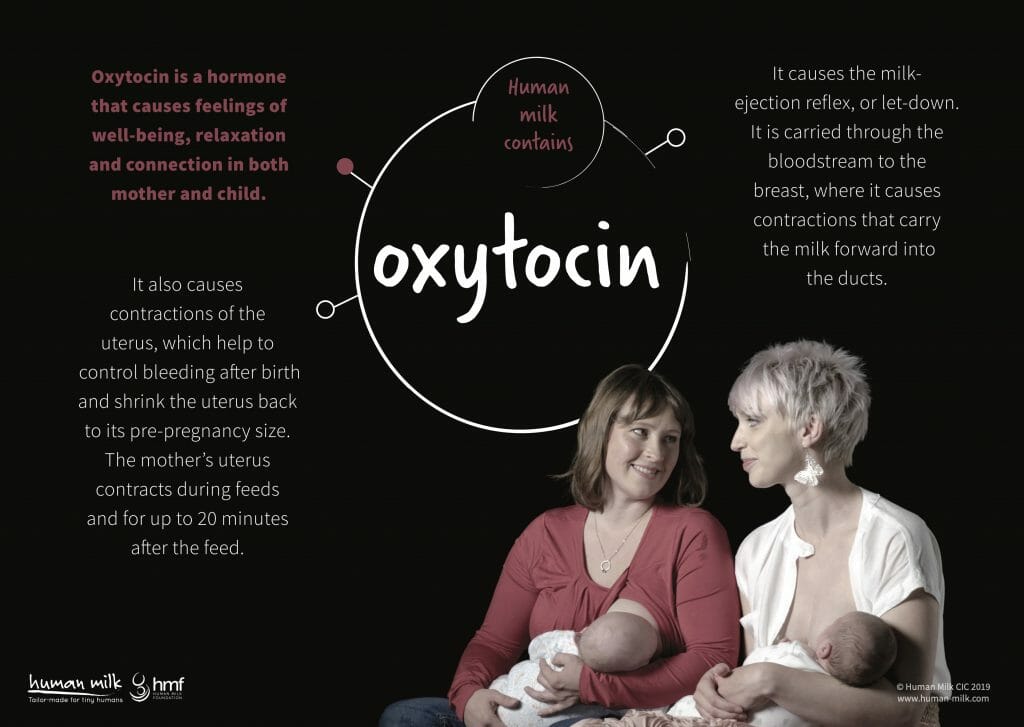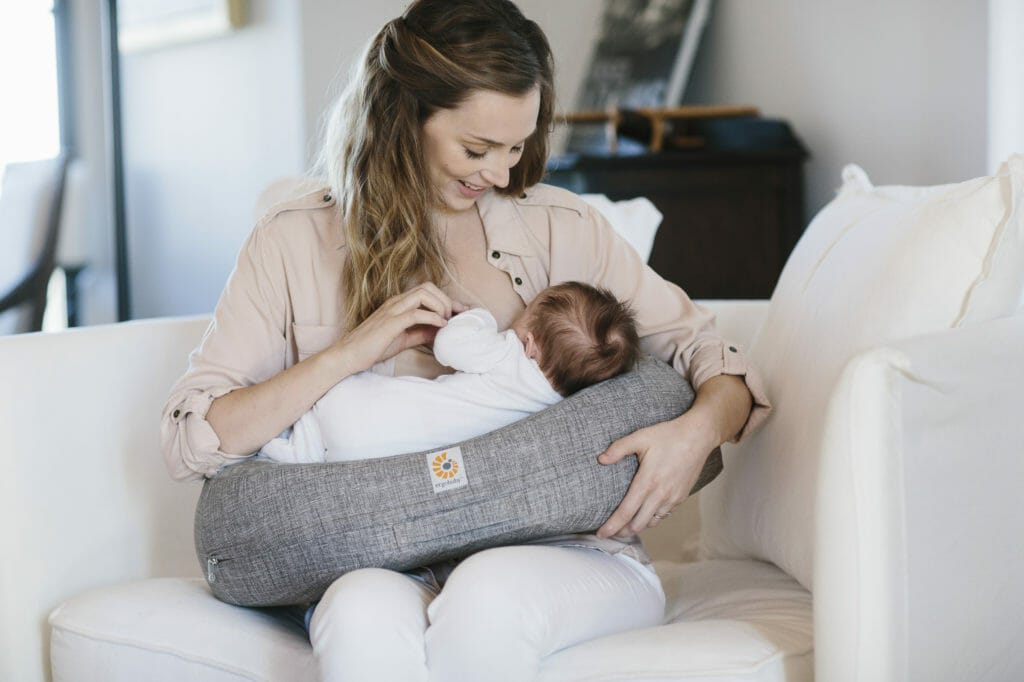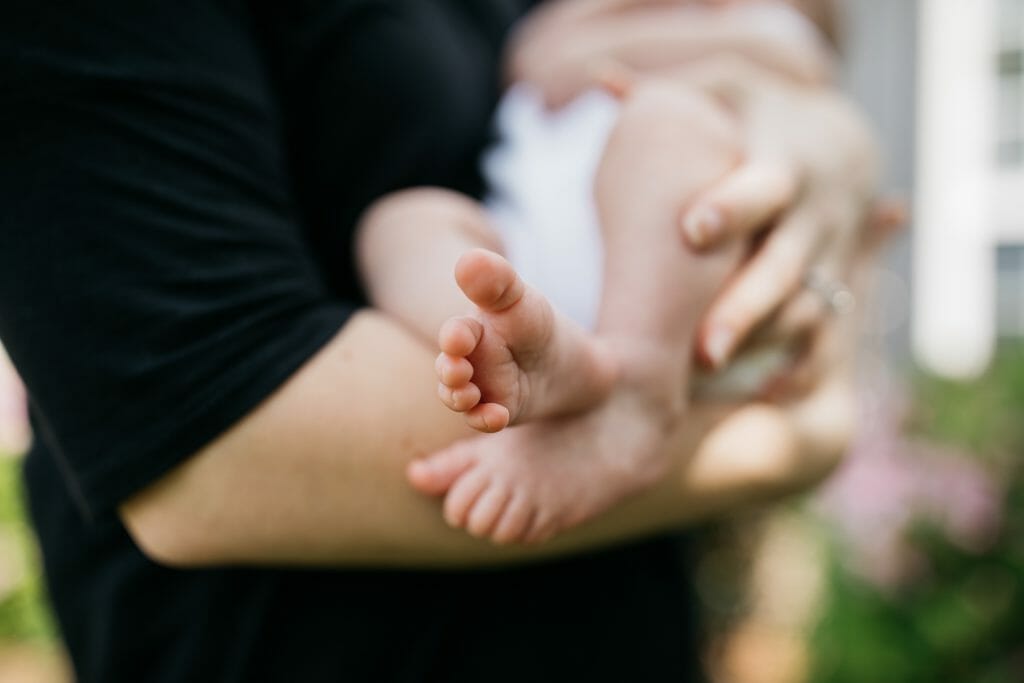
Human Milk - Tailor-made for Tiny Humans. Babywearing and breastfeeding are a perfect match.
Holding your baby close has many benefits for both you and your baby, not least for stress relief, bonding, and breastfeeding. Your baby wanting to be close to you all the time is the most natural thing in the world. And it can also be challenging for us mothers.
Using a baby carrier is an age-old way to stay close, whilst also being able to move around and use your arms! And you can breastfeed in all of Ergobaby's carriers.
Holding our children, especially skin-to-skin, but also clothed, causes the production of a hormone called oxytocin, which has a host of essential positive effects on both mother and child. Oxytocin helps to warm our skin and regulate our baby’s temperature and induces feelings of safety, well-being, and relaxation in both mother and baby, reducing stress levels, and assisting in our bonding process. In fact, some research suggests that higher levels of exposure to oxytocin in the early days can reduce life-long stress levels.
Oxytocin is also essential to the production of milk and causes the ejection of the milk from the breast. It is present as a component in your milk itself too. If you are breastfeeding, you might be familiar with the many hours invested in feeding your baby, quite possibly more often than you were expecting to. This is also normal. The good news is that you can use your carrier to breastfeed when you’re out and about once you feel ready.

Frequent breastfeeding is the way your milk supply becomes established in the early days and is a normal infant behaviour given how tiny babies’ tummies are. They need a little milk, often. Your body makes milk in response to demand from your baby. The more your baby feeds, the more your body makes, and vice versa.
It’s a good idea to learn to breastfeed and wear your baby as separate skills and combine them when you’re ready. There’s no rush to get out and about after birthing unless you want to. Take the time you need to recover and bond as a family.
For all those snuggly feeds at home, a feeding pillow can help you both stay comfy. Just make sure the tv remote, snacks, and a pint of water are close by!

When your baby is going through growth spurts, it’s normal to find they want to feed constantly, sometimes for many hours in a row. Babies and toddlers also go through periods called cluster feeds, often in the evenings, where feeding increases and can seem to go on forever.
You might even end up wondering if you have enough milk. Many mothers go through this worry, particularly in the early days when they and their babies are still learning, and when milk supply is established and their beasts become softer again. But provided your baby is gaining weight, and nappies need changing regularly, this is also normal and healthy, and your milk supply is just fine.
Your child might simply be growing normally, and just feed more than you expected. Or they might be teething, stressed, or sore after a bump. Human milk contains painkilling and anti-inflammatory components, which, coupled with the reassurance of being held close, are exactly what your little one needs in these moments.
Falling asleep at the breast after a feed is also natural and healthy, and feeding in your baby carrier ensures that your little one can nod off and stay fast asleep if you want to move around and go about your day.

If your child is ill, your body will produce the antibodies needed to fight the infection and deliver them to your child through each feed. Your body recognises specific bacteria and viruses found in your baby’s body and environment, and the antibodies you produce will be tailored to that specific infection. The more your baby feeds, the more of those antibodies they will receive, so any increase in feeding that may occur is a good plan on your little one’s part!
Some components such as the antiviral and antibacterial enzyme Lysozyme increase in your milk when your baby is around 6 months old and becoming more mobile, and again after a year. Lactoferrin, a protein that inhibits the growth of some cancerous cells and binds to the iron in your child’s body to prevent pathogens from feeding on it, also increases in concentration over time.
There are many good reasons your baby wants to be held and to breastfeed, and a feeding pillow and baby carrier can support you in navigating those times.
Enjoy being close to your tiny human!
Human Milk CIC is a non-profit organisation committed to promoting the science of human milk and breastfeeding to support the health of mothers and infants globally. To learn more, visit www.human-milk.com and visit http://human-milk.com/science.html for all sources. Or visit Human Milk on Facebook: @Milk4TinyHumans and @HumanMilkClothing, Twitter: @Milk4TinyHumans and @HumanMilkBrand or Instagram: @humanmilkclothing.






















